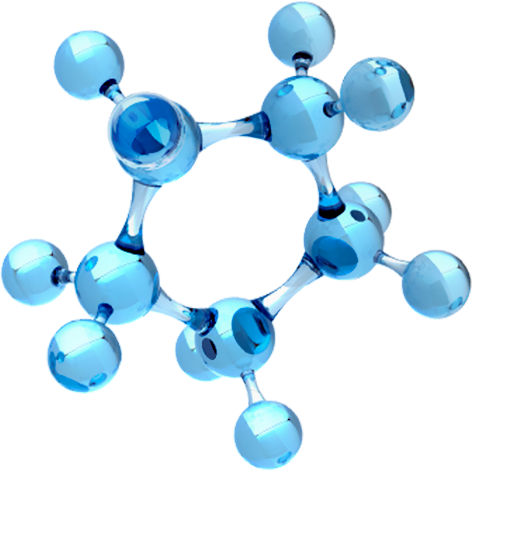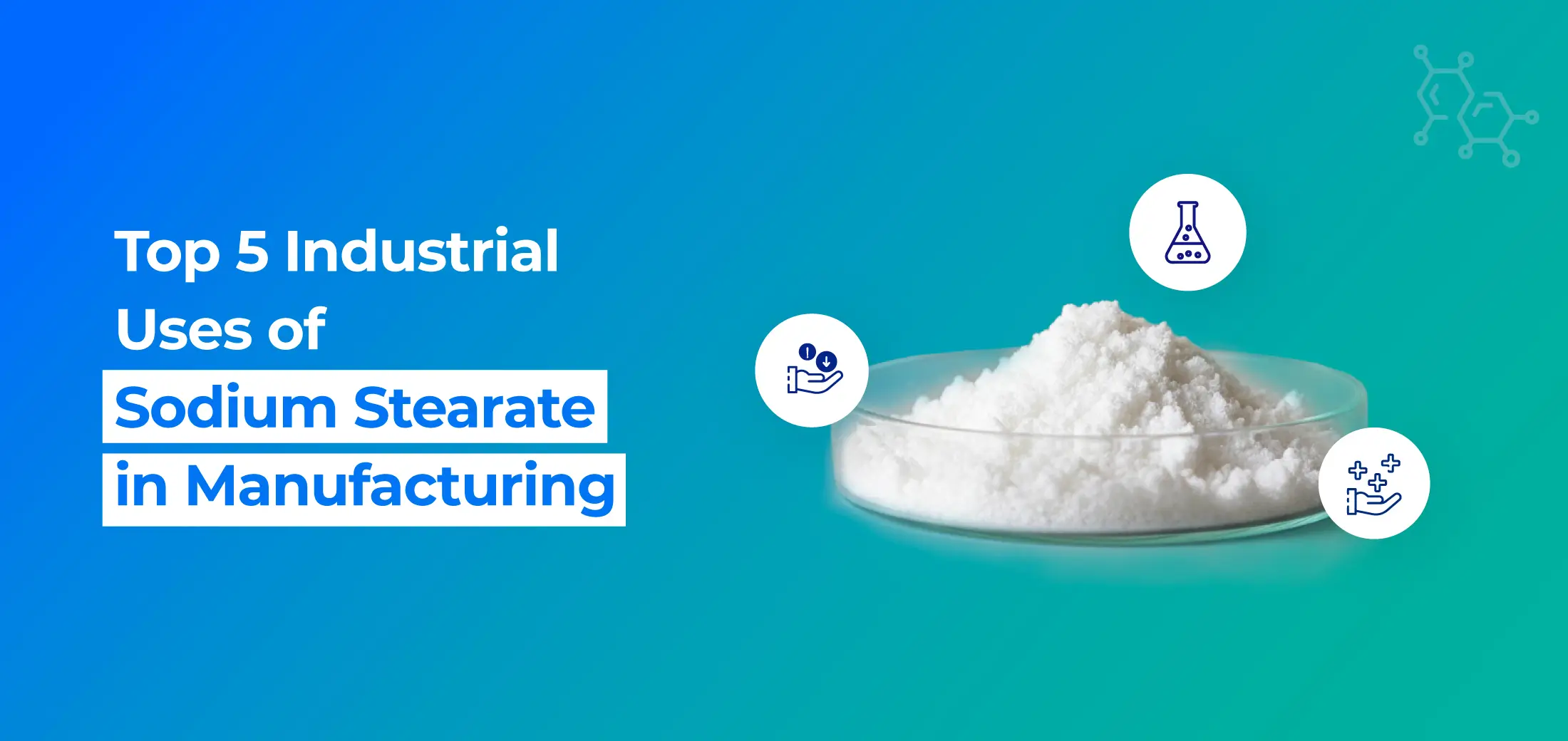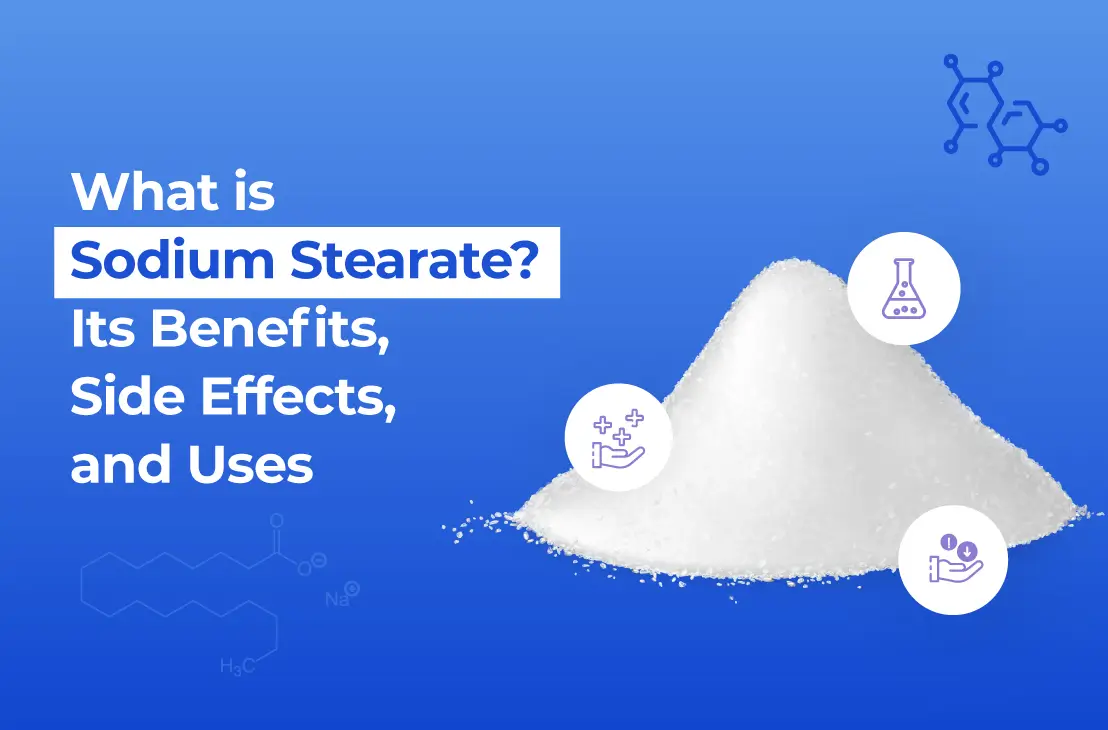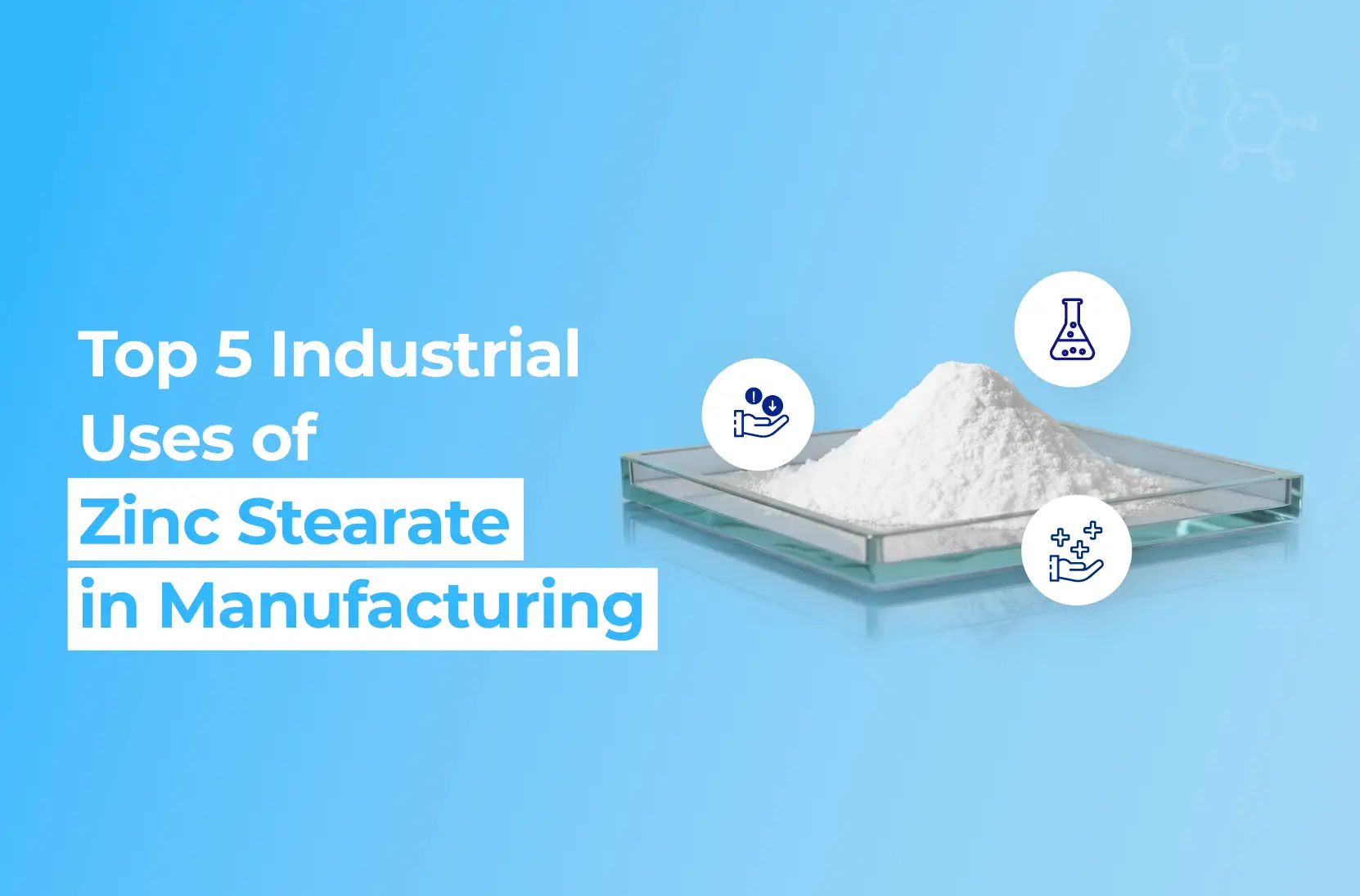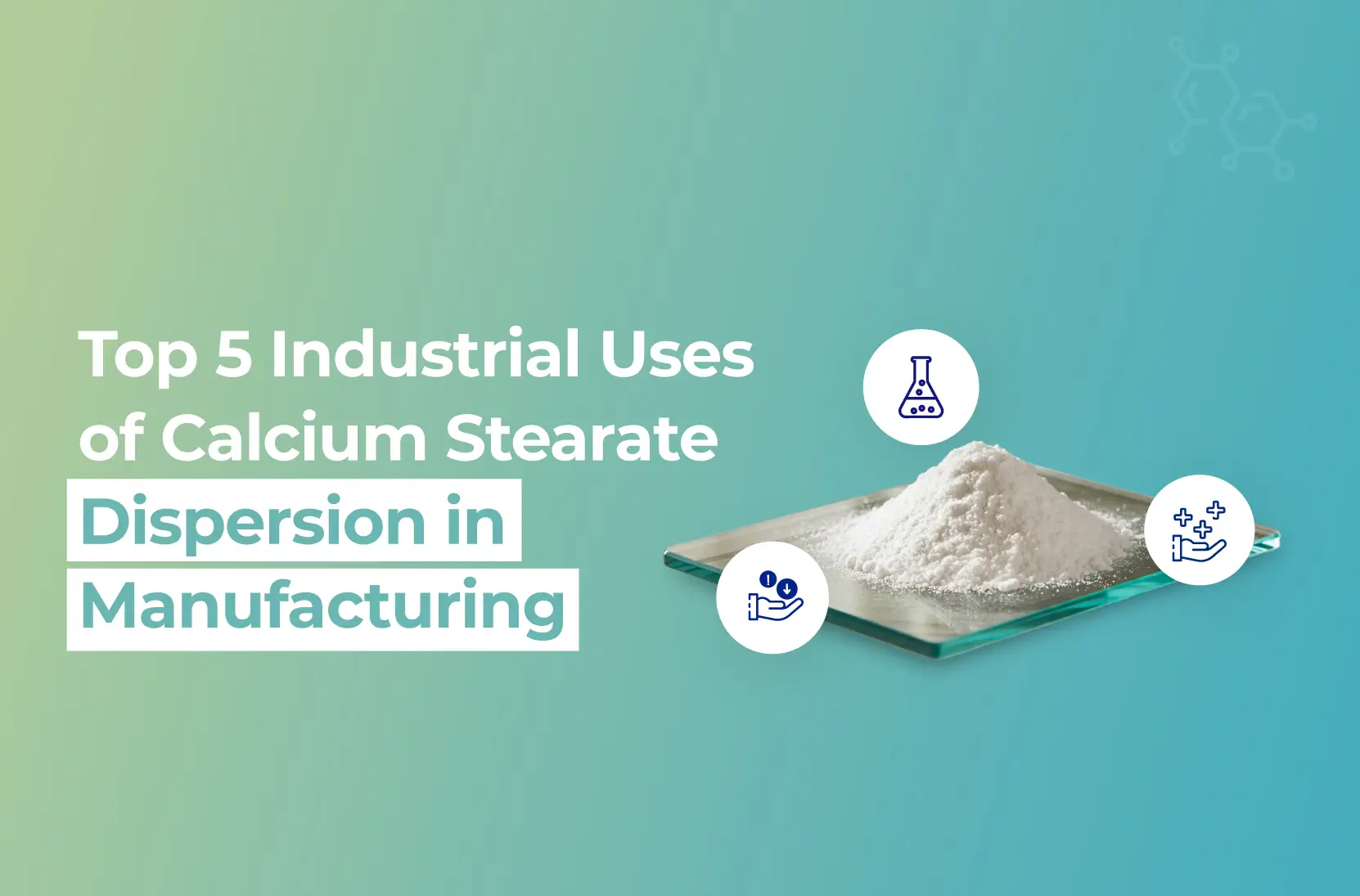As a part of the manufacturing sector, you know that the production process requires subtle additives apart from your raw materials. These agents eventually decide whether your production flow runs hassle-free or encounters setbacks.
Sodium stearate is one of these essential compounds that finds its use across several verticals. It is the sodium salt of stearic acid and comes with exceptional properties for emulsifying, stabilizing, lubricating, and binding.
With these agents, cosmetic products glide smoothly on the skin, and pharmaceutical products remain consistent. In paper and textile production, it improves the overall finish of the products.
In this blog, you'll get to know the five most crucial industrial uses of sodium stearate.
Use of Sodium Stearate in Manufacturing - A Comprehensive Overview
What makes sodium stearate a crucial component in the manufacturing sector? Let's explore the essential applications of this compound.
1. Cosmetics & Personal Care
First, let's take a look at the uses of sodium stearate in cosmetics and personal care.
-
Emulsifier & Stabilizer
In the cosmetics industry, sodium stearate plays a vital role as an emulsifier and stabilizer. Manufacturers use this agent to make sure that oil and water-based components in creams, lotions, and deodorants remain perfectly blended. It prevents them from separating, which gives skincare products a uniform texture that stays consistent throughout their shelf life.
-
Thickening Agent
Sodium stearate is used as a thickening agent in many beauty and hygiene products. Manufacturers use it to add structure to bar soaps, deodorant sticks, and gel-based cosmetics. It helps them to hold their shape while users find them easy to apply.
-
Cleansing Role
Sodium stearate is also one of the most common ingredients in bar soaps and shaving foams. With its surfactant property, it produces a rich yet subtle lather. This lather effectively lifts dirt, oil, and impurities from the skin.
-
Compatibility with the Skin
The compound is gentle on the skin. It significantly enhances the formulations of products without causing any sort of irritation. The balance of functionality and safety makes it a preferred ingredient in skincare solutions. Manufacturers, therefore, can deliver cosmetics that perform well and enhance the overall user experience.
2. Pharmaceuticals Industry
In medicines, sodium stearate finds several practical uses.
-
Tablet Lubricant
Sodium stearate is highly valued as a lubricant in the manufacturing process of medicines. It prevents powdered ingredients from sticking to tablet presses during production. As a result, the operations run smoother, cutting down the wear and tear of machines.
-
Binder
Sodium stearate also serves as a binder. It helps powdered formulations remain coherent, which allows manufacturers to produce strong and uniform tablets. As a result, the products become less prone to breaking during packaging or transport.
-
Stability Agent
Another important role of sodium stearate in the pharmaceutical sector is its ability to enhance the stability of products. It reduces the sensitivity to moisture, thereby improving consistency. As a result, medicines get a longer shelf life.
3. Rubber & Plastics Industry
Sodium stearate is a key ingredient in rubber and plastic manufacturing.
-
Processing Aid
If you are in the rubber or plastic industry, you need a dependable processing aid. Sodium stearate serves as this aid, as it reduces internal friction during compounding. In the process, it ensures that the polymers, fillers, and additives smoothly blend. This makes the production process more efficient, and it consumes less energy.
-
Lubricant
Manufacturers also benefit from the lubricating property of sodium stearate, which prevents raw rubber and plastic compounds from sticking to molds or machinery. Production firms, in the process, can achieve precise shapes. It also reduces the downtime caused by cleaning and maintaining the equipment.
-
Dispersing Agent
Sodium stearate also proves effective as a dispersing agent. It allows fillers, pigments, and other additives to distribute evenly throughout the material. This uniformity directly leads to better consistency, making the final products durable.
4. Textile & Paper Industry
The agent is considered crucial by textile and paper manufacturers as it contributes to the production process in several ways.
-
Antistatic & Lubricant
In textile manufacturing, sodium stearate works both as an antistatic and a lubricant. When manufactures use high-quality compounds, it prevents fibers from clumping together when they are processed. As a result, it improves the overall quality of the fabric and makes handling smoother. Textiles also become easier to weave, finish, and dye with this approach.
-
Water Repellence
In both textiles and paper, sodium stearate is valued for its water-repellent properties. The compound creates a protective barrier, which helps fabrics resist the absorption of moisture. It also strengthens the paper against damage from humidity and contact with liquids.
-
Surface Finish
Manufacturers also use sodium stearate to improve the surface finish of textiles and paper. It makes textiles soft and enhances the overall feel of fabrics. In paper, the surface becomes more receptive to inks. As a result, texts become clear, and images become sharper.
5. Cleaning & Detergent Industry
One of the most practical applications of sodium stearate lies in the cleaning and detergent industry.
-
Foaming Agent
Sodium stearate is one of the most trusted ingredients in the cleaning and detergent industry. It offers excellent foaming properties, which make the foam rich and stable. Some of the common use cases include the manufacturing of products like laundry detergents, dishwashing liquids, and hand cleansers.
-
Emulsification
Another vital role of sodium stearate is its ability to break down grease and oils. It serves as an emulsifier and lifts stubborn dirt and oily residues from surfaces and fabrics. This helps in thoroughly cleaning fabrics, which is important for household and industrial cleaning applications.
-
Soap Manufacturing
One of the most well-known uses of sodium stearate is in bar soap production. It provides cleaning agents with structure and lather. The cost-effectiveness and consistency of the agent make it a staple ingredient in the global soap industry.
Source High-Quality Sodium Stearate from Nimbasia Stabilizers
Manufacturers need reliable sourcing for crucial ingredients like sodium stearate when it comes to production. Whether you're into rubber, textiles, or detergents, you need a dependable partner to source these vital compounds. At Nimbasia Stabilizers, we deliver high-quality sodium stearate solutions for consistent performance. Partner with us for trusted sourcing and superior product quality to ensure long-term success.


